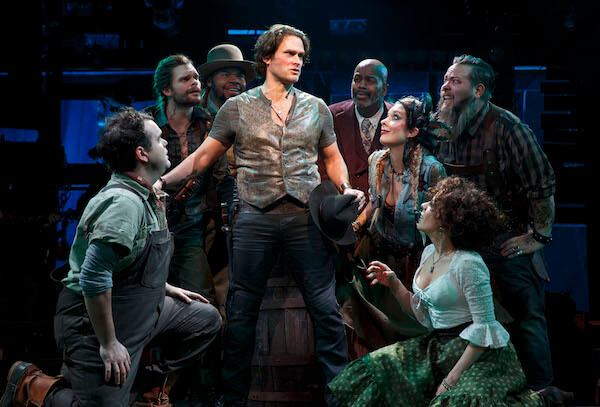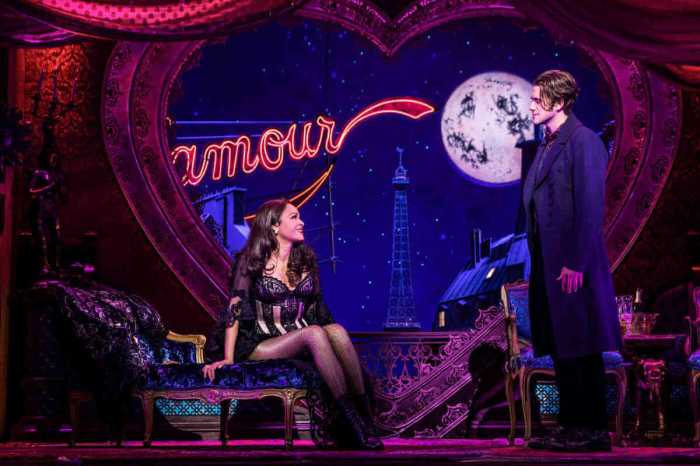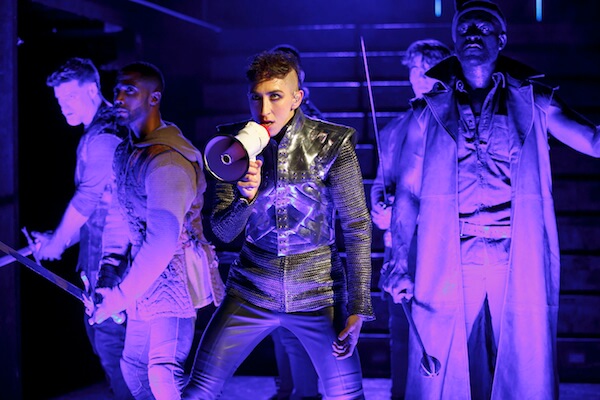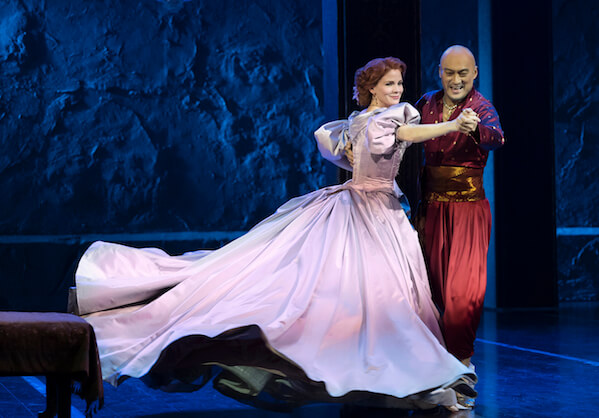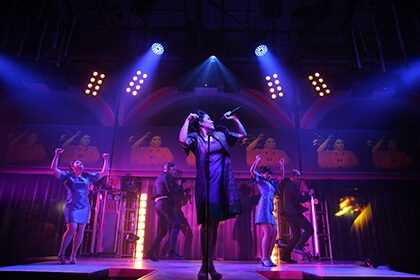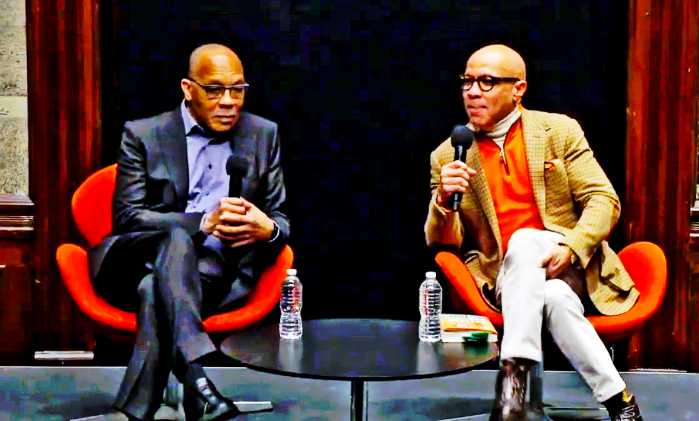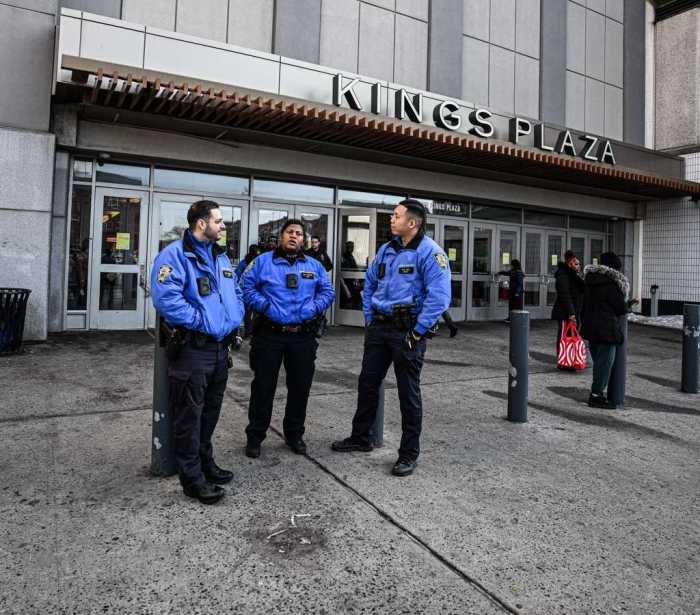For all its frolicsome charm and antic staging, Roundabout’s exuberant and endearing, production of “The Robber Bridegroom” now at the Laura Pels has a darker and more serious side. Like the story’s two-faced hero — who is both the dark “Bandit of the Woods” and the gentlemanly Jamie Lockhart — the story revolves around the conflict between social norms and darker passions. Based on Eudora Welty’s 1942 novella, the show is billed as a “Southern Fairy Tale,” and indeed it bears all the Jungian trappings of its Grimms sources.
Rosamund, daughter of a wealthy planter, is to be married off to Lockhart, but she has fallen for the romantic Bandit. The Bandit/ Lockhart is torn between the financially advantageous marriage and his darker sexual longings. This is an archetypal conundrum, with practicality and passion competing for the souls of characters struggling to integrate the realistic and the romantic in their lives. Welty took this universal theme and classic set-up and melded them with her penchant for outrageous characters — a wicked stepmother, a dim lackey, a doting father, and a robber who is nothing more than a head on a box.
Alfred Uhry’s book and lyrics preserve the fantastical nature of the characters and the story, and Robert Waldman’s upbeat music is consistently bright and charming. The show was originally staged in 1975, and it owes its theatricality in large measure to “Paul Sills’ Story Theater,” which had made Broadway fare out of “Grimms’ Fairy Tales” a few years earlier.
Two shows with regional flavor come to very different ends
The current production, directed by Alex Timbers, sparkles with affectionate wit and warm absurdity. No one would ever mistake this for realism. As he did in “Bloody Bloody Andrew Jackson,” Timbers makes the most of the manic nature of the piece, with a clear eye for comedy and a rich understanding of the humanity at the center of the stylized and self-aware storytelling.
Steven Pasquale leads the cast in the title role. He sings the part beautifully and demonstrates a flair for comedy not seen in his most recent stage work in “The Bridges of Madison County.” Ahna O’Reilly does a fine job as Rosamund in what might have been a one-dimensional role, finding some irony in the heroine/ princess archetype even as her character resists it. Leslie Kritzer is fantastic, as always, as Salomé, the evil stepmother, giving a Southern gothic take on a classic type. The rest of the company, notably Greg Hildreth, Andrew Durand, and Evan Harrington, fill out the off-center characters who populate the piece.
One can’t help being pulled into the fun, and why resist? This delightful show has been deservedly rescued from obscurity — a happy ending indeed.
Steve Martin and Edie Brickell appear to have lifted one of Oscar Wilde’s most famous and deliciously ludicrous plot devices from “The Importance of Being Earnest” for a central point in their new musical “Bright Star.” All you have to do is trade the cloakroom at London’s Victoria Station for a “holler” in North Carolina. For both, the baby-in-a-handbag trope is essential to getting to the story’s secret. Though Martin and Brickell’s story is said to be based on an actual tale, it rings more tall than true in this rambling and clumsy musical now at the Cort.
The plot tells intersecting stories from 1946 and 1924 involving a young man home from the war who wants to write, a hard-boiled editor, a thwarted love, an illicit pregnancy, and an ending that’s obvious from the first few scenes of the show. In its prologue, the character Alice frames the proceedings by singing, “If you knew my story, you’d have a good story to tell,” which likely has many in the audience thinking, “I’ll be the judge of that.”
Martin’s book dishes out the story in sketchy fragments, so it’s both confusing and off-putting. When the story finally does get going, it’s predictable, formulaic musical fodder from the 1950s — dated and not particularly engaging. The score by Martin and Brickell is largely an off-the-shelf hodgepodge of country styles with a little Gospel and big band thrown in for location and period. The lyrics are obvious and forgettable, and the clunk of forced rhymes underscores too many of the songs. The second act production number, “Another Round,” set in a bar, has been pummeled into the score like a specialty number from vaudeville. Most of the songs serve no integral purpose, which leaves the whole undertaking feeling more like a TV variety show from the 1970s than a fresh, new musical.
The bright spot in this twangy tedium is Carmen Cusack as Alice. Playing the characters as a young woman and sadder-but-wiser older self, she is a force to be reckoned with. She has presence, charisma, and thrilling voice that will make her a star. The rest of the company is strong, and it’s thanks to them and the energetic direction of Walter Bobbie that the show delivers what entertainment it does.
As the plot rockets toward resolution in the last 10 or 15 minutes, one can’t help thinking of the Victoria Station cloakroom again. The speed and implausibility with which plot points are brought together underscores what’s wrong with an unfocused show that doesn’t know what it wants to be. You really can’t blame the audience for feeling like Wilde’s handbag — left behind and largely forgotten.
THE ROBBER BRIDEGROOM | Roundabout at the Laura Pels, 111 W. 46th St. | Through May 29: Tue.-Sat at 7:30 p.m.; Wed., Sat.-Sun. at 2 p.m. | $99 at roundabouttheatre.org or 212-719-1300 | Ninety mins., no intermission
BRIGHT STAR | Cort Theatre, 138 W. 48th St. | Tue., Thu. at 7 p.m.; Wed., Fri.-Sat. at 8 p.m.; Wed., Sat. at 2 p.m.; Sun. at 3 p.m. | $45-$145 at telecharge.com or 212-239-6200 | Two hrs., 30 mins., with intermission

